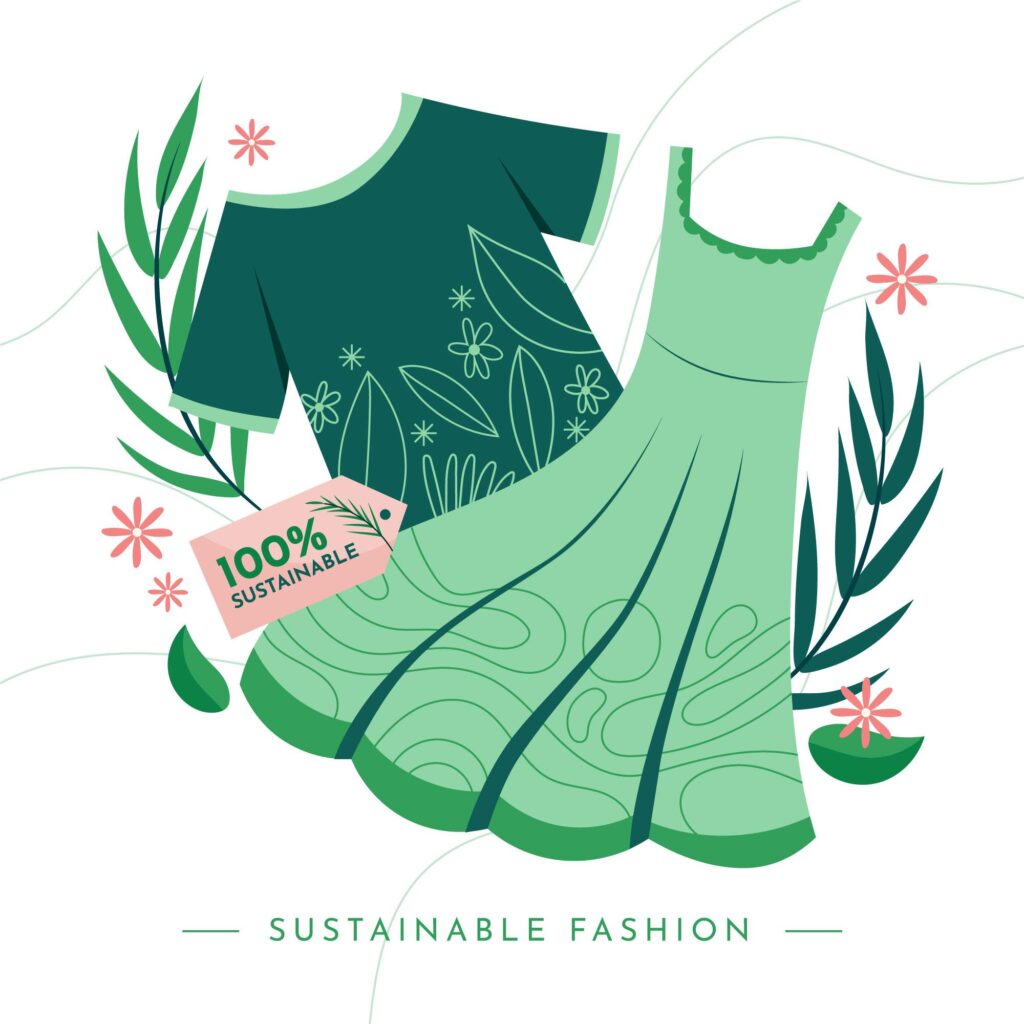Organic clothing is a growing sector within sustainable fashion, emphasizing the use of materials and production practices that are more environmentally friendly and socially responsible. Here’s a detailed look into organic clothing, including its benefits, key materials, and notable brands:

Benefits of Organic Clothing:
- Reduced Chemical Use: This material comes from crops grown without synthetic pesticides, fertilizers, or harmful chemicals. This reduces soil and water pollution and minimizes health risks for farmers and consumers.
- Better for Soil Health: Organic farming practices focus on maintaining soil health through crop rotation, composting, and natural pest control, which enhances soil fertility and biodiversity.
- Lower Environmental Impact: Organic cotton and other organic materials usually need less water and energy to produce than conventional methods. This helps reduce the overall environmental impact of clothing production.
- Ethical Labor Practices: Many brands emphasize fair labor practices, ensuring that they pay workers fair wages and provide safe working conditions.
- Enhanced Comfort and Quality: Organic fabrics are often softer and more breathable due to the absence of harsh chemicals, making them comfortable to wear and gentle on the skin.
Key Organic Materials:
- Organic Cotton: Grown without synthetic pesticides or fertilizers, organic cotton is a staple in eco-friendly fashion. It’s softer and more breathable compared to conventional cotton.
- Hemp: Hemp is a highly sustainable crop that requires minimal water and pesticides. It’s durable, biodegradable, and has natural antibacterial properties.
- Bamboo: Bamboo is a fast-growing, renewable resource. When processed organically, it creates a soft, breathable fabric that’s naturally antibacterial and moisture-wicking.
- Organic Silk:
- Tencel (Lyocell): Tencel manufacturers produce the fabric from sustainably harvested wood pulp and use a closed-loop process to recycle water and solvents. It’s soft, biodegradable, and has moisture-wicking properties.
- Organic Wool: Farmers raise the sheep without synthetic chemicals or antibiotics to source organic wool, which offers a sustainable alternative to conventional wool and is known for its warmth and durability.
Notable Organic Clothing Brands:
- Patagonia: Offers a range of organic cotton and recycled material clothing, with a strong commitment to environmental and social responsibility.
- People Tree: Specializes in fair trade and organic clothing, using sustainable materials and supporting artisans in developing countries.
- Reformation: Known for its trendy designs and commitment to using sustainable fabrics, including organic cotton and Tencel.
- Pact: Focuses on affordable organic cotton basics, with a commitment to ethical production practices and environmental sustainability.
- Thought Clothing: Offers a range of organic cotton and hemp clothing, with a focus on sustainable and ethical fashion.
- Prana: Combines organic cotton with other sustainable materials to create versatile, eco-friendly activewear and casual clothing.
- SiiZU: Features a collection of organic cotton and bamboo clothing, emphasizing comfort, quality, and sustainability.
- Boody: Known for its bamboo-based clothing, Boody offers eco-friendly, soft, and comfortable basics that are produced with minimal environmental impact.
How to Choose Organic Clothing:
- Check Certifications: When describing clothing that features organic or sustainable materials, mentioning certifications can lend credibility and provide reassurance to consumers about the product’s authenticity and environmental impact.
- Research Brands: Investigate the brand’s commitment to sustainability and ethical practices. Many brands provide transparency about their sourcing and manufacturing processes.
- Consider Fabric Care: This can be more sensitive to washing and care.
- Look for Versatility: Opt for versatile pieces that can be worn in various ways and reduce the need for excessive purchases, aligning with sustainable fashion principles.
By choosing organic clothing, you support environmentally friendly practices and contribute to a more sustainable and ethical fashion industry.
Your articles are extremely helpful to me. May I ask for more information?
yes